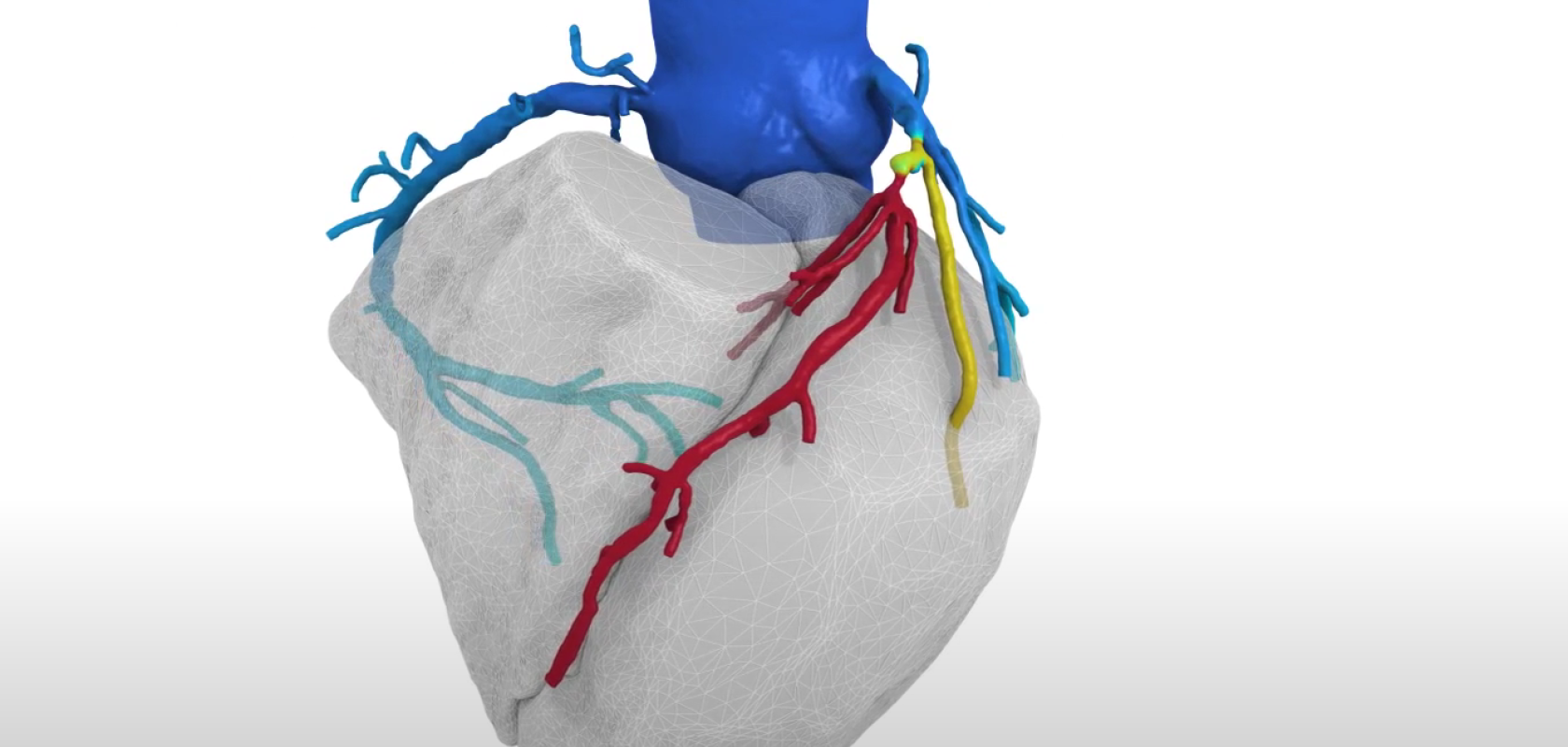The NHS is rolling out a deep learning-powered 3-D imaging technology to diagnose and treat patients with suspected heart disease - five times faster than normal.
Known as HeartFlow, the latest innovation delivered as part of the NHS Long Term Plan, turns a regular CT scan of the heart into a 3D image allowing doctors to diagnose life-threatening coronary heart disease (CHD) in just twenty minutes. The programme aims to adopt the AI-powered HeartFlow FFRCT Analysis to fight CHD.
HeartFlow Analysis takes data from a coronary CT angiography (CTA) scan and uses deep learning technology and highly trained analysts to create a personalised, digital 3D model of the patient’s coronary arteries. Its algorithms solve millions of equations to simulate blood flow in a patient’s arteries to help clinicians assess the functional impact of any blockages.
The National Institute of Health and Care Excellence (NICE) advocates a CTA-first approach to diagnosing CHD1. The HeartFlow Analysis has been declared a best practice non-invasive option for patients in recent updates to NICE’s guidance, stating that the technology should be considered as an option for patients with stable, recent onset chest pain who are offered CTA. HeartFlow plays a central role in providing clinicians greater confidence in their diagnoses while reducing the time to diagnose patients.
Once patients are diagnosed using the 3D image treatments include surgery, medication or having a stent fitted. For less serious cases patients will be given tips on healthy lifestyle changes or cholesterol-lowering medication – meaning the risk is quickly resolved before it becomes life-threatening.
NHS medical director Stephen Powis said: ‘The NHS Long Term Plan committed to cutting strokes, heart attacks and other major killers as well as ensuring patients would benefit from cutting edge therapies and techniques and HeartFlow is just the latest example of that.
‘By rapidly improving the rate we diagnose and treat those with a heart condition we will save thousands of lives and ensure as well as delivering the most successful vaccination programme in health service history, the NHS is able to deliver routine services even quicker than before the pandemic.’
Around 100,000 people are eligible to use HeartFlow over the next three years, with more than 35,000 people set to benefit each year.
Matt Whitty, director of innovation and life sciences for NHS England, said: ‘This latest innovation will help patients and will contribute to helping the NHS to recover from the pandemic as we continue to deliver on our ambitious Long Term Plan commitments to provide patients across the country with the most up to date tech, as quickly as possible.’
‘HeartFlow has been a huge success in clinical trials and will now help tens of thousands of people a year receive quick diagnosis and treatment and ultimately save lives, Whitty continued.’
Dr Derek Connolly, consultant interventional cardiologist at Sandwell & West Birmingham Hospitals NHS Trust said: ‘For every five patients who have a cardiac CT and a HeartFlow Analysis, four patients go home knowing they don’t need anything else. Half of those patients will be on cholesterol tablets because they have early disease, and the other half will have normal coronary arteries.’
‘Incorporating the HeartFlow Analysis has had a meaningful impact at our hospitals, improving the diagnosis and treatment of the leading cause of death,’ added Connolly.
The NHS Long Term Plan promised that patients would benefit from faster adoption of cutting-edge technology and treatments.
This latest technology has been rolled out across the NHS from last month as part of the MedTech Funding Mandate policy, an NHS Long Term Plan commitment that supports the implementation of proven medical devices, diagnostics and digital products.
Since the NHS Long Term Plan was published, NHS England has rolled out the headache-busting device GammaCore as well as covid-friendly cancer drugs, SecurAcath.
In January 2021 HeartFlow first announced that the National Health Service England (NHSE) and NHS Improvement have mandated that English hospitals adopt the AI-powered HeartFlow FFRCT Analysis.
The HeartFlow Analysis has been selected as one of the innovations supported by NHSE’s new MedTech Funding Mandate. The Mandate, which began 01 April 2021, aims to provide innovative medical devices and digital products to NHSE patients faster, and is a key policy in helping to improve patient care and reduce costs for the public health service. The Mandate includes the option to extend funding for up to an additional three years through 31 March 2024.
In that first announcement, Dr Anna Beattie, Consultant Cardiothoracic Radiologist at Newcastle Hospitals, commented on the use and testing of HeartFlow Analysis: ‘We have used the HeartFlow Analysis in Newcastle Hospitals since August 2018. It has contributed to significant changes in the way we diagnose patients and use hospital resources. Prior to adopting the technology, we used a coronary CT-first approach for 28 per cent of all patients referred to our rapid access chest pain clinic. Now that has risen to more than 45 per cent and the number of diagnostic-only invasive angiograms we perform has reduced. The HeartFlow Analysis is a great tool to supplement a CT-first approach by providing functional information on top of the anatomical information from a CT scan. This is great for patients as it reduces unnecessary risks and means they spend less time at the hospital.’
Dr Timothy Fairbairn, Consultant Cardiologist at Liverpool Heart and Chest Hospital also commented: ‘In our practice, 4 out of 5 patients who have a HeartFlow Analysis avoid the need for further invasive testing. This enables us to treat patients more quickly, leading to an improved patient experience and has had a positive impact on our waiting times for other non-invasive stress tests.’
‘The MedTech Funding Mandate allowed us to have a positive conversation with our commissioners, emphasising the real benefits our practice has experienced and secure funding for continued use of the HeartFlow Analysis going forward. The MedTech Funding Mandate and funding commitment from commissioners means NHS hospitals will be able to continue to offer the best available technologies in our approach to the diagnosis and management of CHD for patients.’
HeartFlow’s technology is already used in 60 NHSE hospitals. The extension of the ITP and introduction of the MedTech Funding Mandate will allow hospitals to continue providing cutting-edge care to patients and accelerate the adoption of the technology in hospitals throughout the country.


